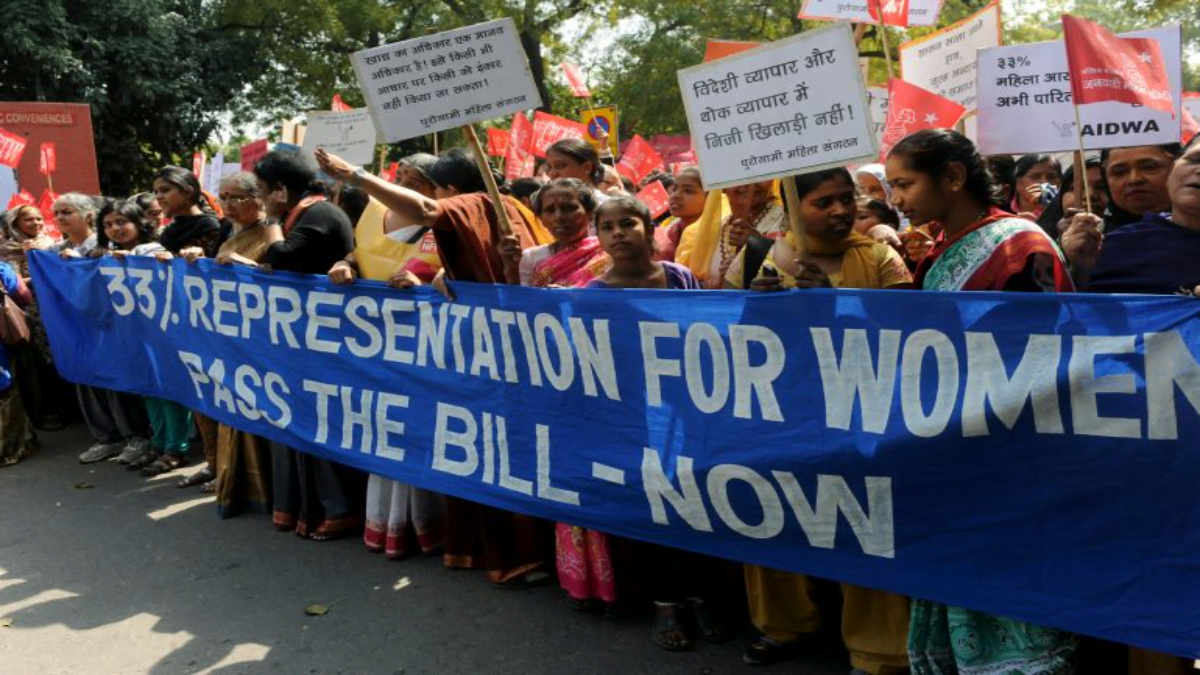The concept of women’s reservation in parliament has long been a subject of debate and discussion, aiming to address the underrepresentation of women in the highest echelons of political power. However, even before the bill was introduced it stirred a discomfort. As soon as BJP’s lead speaker Jharkhand MP Nishikant Dubey stood up to speak on the Bill that seeks to give women 33% reservation in the Lok Sabha and State Assemblies, there were protests from the Opposition Benches as to why a male MP was the first speaker on behalf of the ruling party. At this, Home Minister Amit Shah stood to respond, stating, that he wished to ask Mr. Chowdhury ‘whether only women should speak on these issues. Can’t men speak on women’s issues?‘
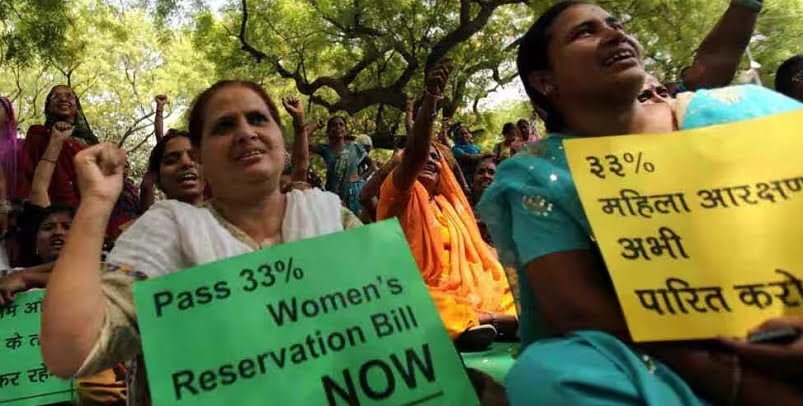
Yes, women’s issue could be raised by any individual irrespective of their gender. Gender equality is a goal that could be reached by equal contribution of people irrespective of what gender they identify with. However, at this crucial moment when women are advocating for legislative seats reserved for them, it could have been more impactful if women had introduced the bill themselves, asserting their rights and setting a precedent against the prevailing cultural practice of men taking care of sisters as big brothers.
Can reserving seats for women truly empower them within a system that is deeply rooted in a male-dominated atmosphere?
The first session of the new Parliament passing a bill addressing gender justice has been a significant milestone. Yet, there remains a lingering question: Can reserving seats for women truly empower them within a system that is deeply rooted in a male-dominated atmosphere?
A brief history of the women’s reservation bill
Since gaining independence from colonial rule, India has upheld the principle of equal political and civil rights for both men and women. Over time, there has been a substantial rise in the participation of women as voters in elections, with the latest national elections in 2019 witnessing nearly equal turnout between men and women. However, when it comes to women’s representation as elected officials, the numbers are disappointingly low. In both the Lok Sabha and the Rajya Sabha, women occupy only 14 percent and 13 percent of the seats, respectively.
However, with the passage of the 73rd and 74th Amendment Acts for the establishment of local self governments, the section for the reservation of one-third of the total number of seats for women in these bodies has ensured better representation of women in grassroot decision making bodies.
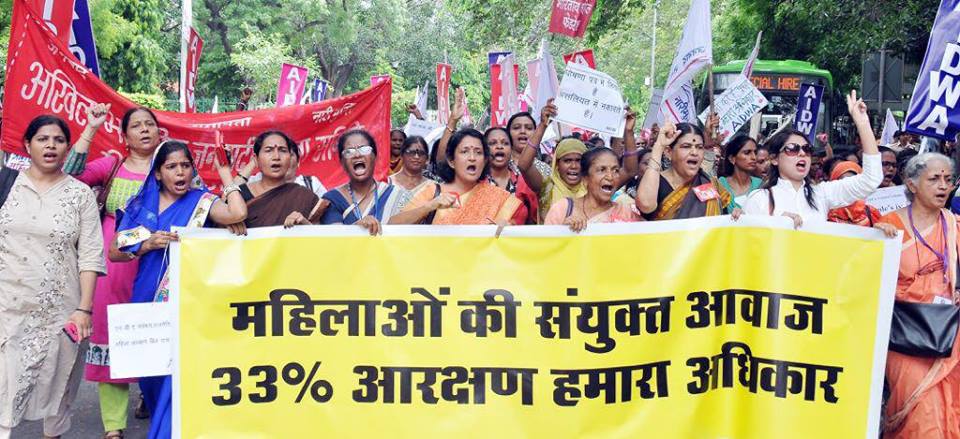
Bills amending the Constitution to reserve seats for women in Parliament and state legislative assemblies have been introduced in 1996, 1998, 1999, and 2008. The Bills lapsed with dissolution of their respective Lok Sabhas. The passage of the bill, twenty-six years after its initial introduction, marks a significant and commendable achievement.
Principal aspects and concerns of the women’s reservation bill
Despite the bill being passed by the Lok Sabha with a majority of 454 votes in favour, two AIMIM MPs – Asaduddin Owaisi and Imtiaz Jaleel might have voted against the bill as AIMIM opposed the bill during the discussion. The obvious reaction would be why did two MPs in front of a sweeping majority dissent? Owaisi during his argument said the bill would only facilitate savarna women participation. ‘I oppose this legislation…The justification that is being given for the bill is that more women will get elected to Parliament. If that is the justification, why that justification is not being extended to the OBC and Muslim women whose representation in this august House is minimal…We know Muslim women are seven per cent of the population, but in this Lok Sabha their representation stands at only 0.7 per cent,‘ Owaisi said. While invalidating the entire bill on this basis may obstruct the already slow and challenging path to gender justice, Owaisi’s point about the savarna perspective should not be disregarded. It rightfully highlights the concept of intersectionality in the struggle for gender justice and women’s empowerment.
The presence of women in leadership roles is a vital step towards achieving gender equality, but it does not automatically ensure the representation of all women, considering the complexities of caste, class, religion, and ethnicity. “Women” as a category is not monolithic, as it encompasses a diverse range of experiences and backgrounds. Intersectionality plays a crucial role in this context.
“Women” as a category is not monolithic, as it encompasses a diverse range of experiences and backgrounds. Intersectionality plays a crucial role in this context.
When a woman from an upper-caste background attains a leadership position, she may struggle to empathise with the lived experiences of caste discrimination faced by women from marginalised communities in her work. Likewise, a woman from an economically disadvantaged background may find it challenging to identify with the leadership of a woman from a privileged, affluent class. Their life experiences, challenges, and priorities vary due to their intersecting identities. To achieve inclusive representation, it is essential to recognise these differences and ensure that leadership positions reflect the diversity within the female population by promoting not just gender diversity but also diversity in terms of caste, class, religion, and ethnicity to genuinely address the unique experiences and struggles of all women.
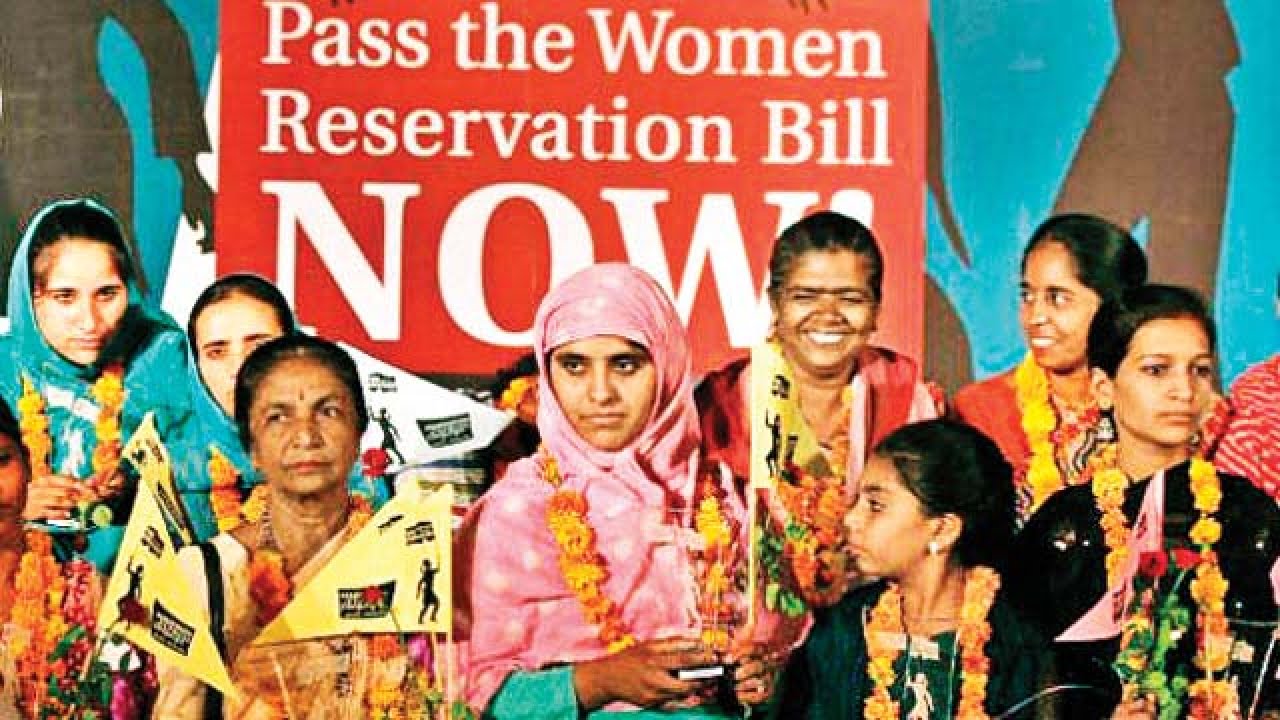
Under this bill, the reservation of one-third of all seats for women in Lok Sabha, state legislative assemblies, and the Legislative Assembly of the National Capital Territory of Delhi is applicable to the seats reserved for SCs and STs in Lok Sabha and state legislatures. However the bill has not mentioned reservation for women from OBC categories as well as muslim women who have lower levels participation compared to counterparts in other major religions. While Owaisi has raised the Muslim women issue, Congress party has made the demand for a separate quota within quota for OBCs after conducting a caste census.
The other concern that has been raised is whether the policy of reservation for women can act as an effective instrument for their empowerment. Despite the presence of more women in the decision making system, women’s voices are barely heard as the system in itself is patriarchal, gender norms are well ingrained there. Thus mere reservation of seats will not bring an end to gender inequality unless gender biases entrenched within the system is ripped off.
The system of rotating constituency would diminish the incentive to work for women MPs as after ten years she will not get the opportunity of re-election from the same constituency
The bill states that the reserved seats shall be allotted by rotation after every delimitation exercise which means after every ten years, with new constituency framework through delimitation, the earlier reserved seats for women would be withdrawn and new constituencies would be selected for women reservation. The system of rotating constituency would diminish the incentive to work for women MPs as after ten years she will not get the opportunity of re-election from the same constituency. A study by the Ministry of Panchayati Raj recommended that rotation of constituencies should be discontinued at the panchayat level because almost 85% women were first-timers and only 15% women could get re-elected because the seats they were elected from were de-reserved.
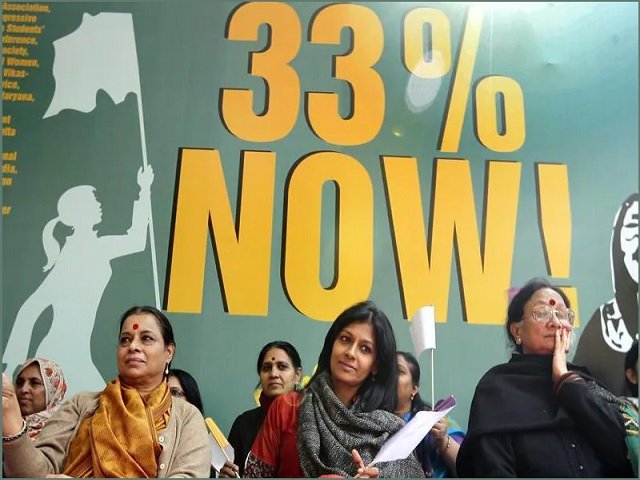
Last but not the least, women’s political participation is undoubtedly important, but it alone does not guarantee socio-economic progress, improved health, or better educational outcomes. It becomes essential to explore alternatives to reservation systems that can holistically uplift women and marginalised communities, addressing the multifaceted challenges they face in achieving socio-economic advancement and improved well-being. Two alternatives have been suggested by some experts: reservation for candidates within political parties ; and dual member constituencies where some constituencies shall have two candidates, one being a woman. Initially, India had multi-member constituencies which included an SC/ST member. A 1961 Act converted all constituencies into single member constituencies.
About the author(s)
I'm a Political Science graduate. My area of interest is identity politics, politics of violence, and post-colonialism. I'm passionate about politics, history, literature and art. I unwind by journaling.
